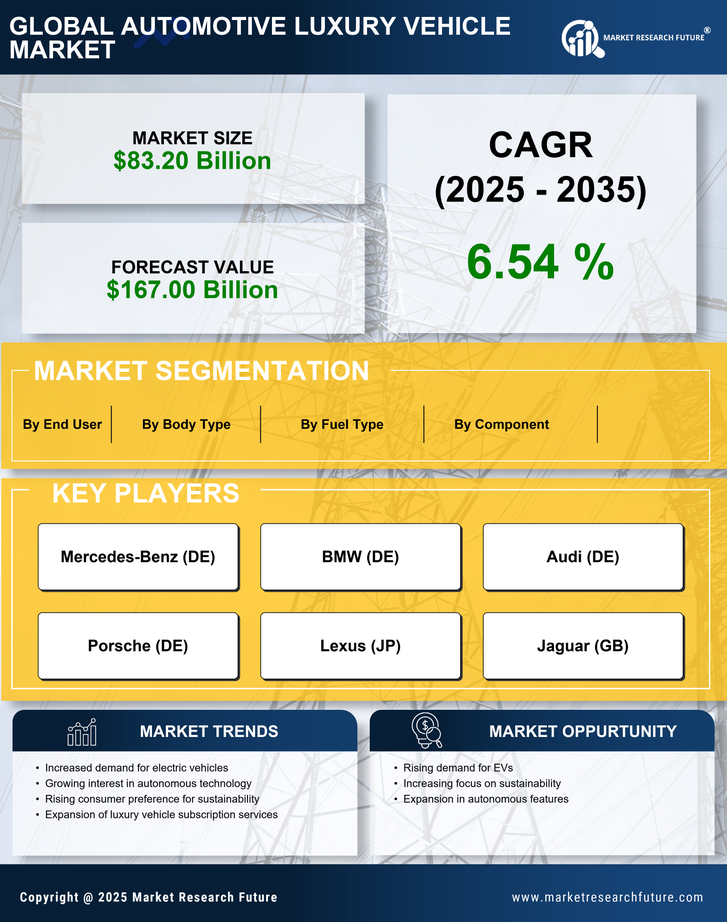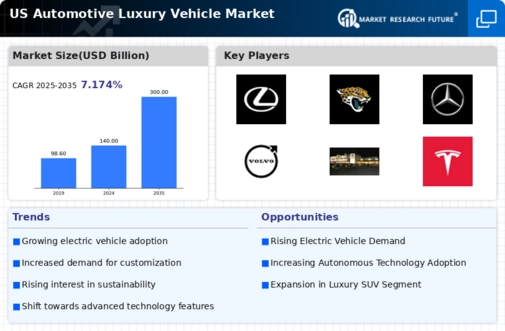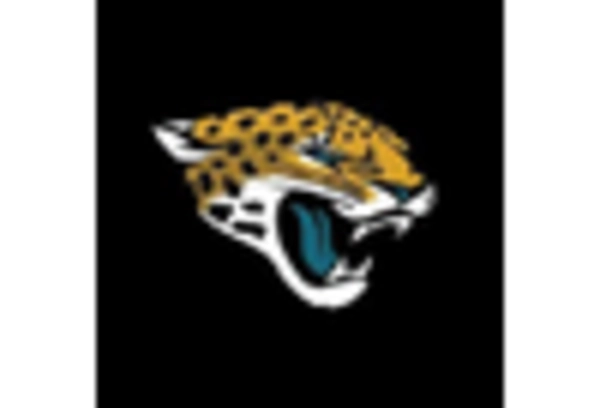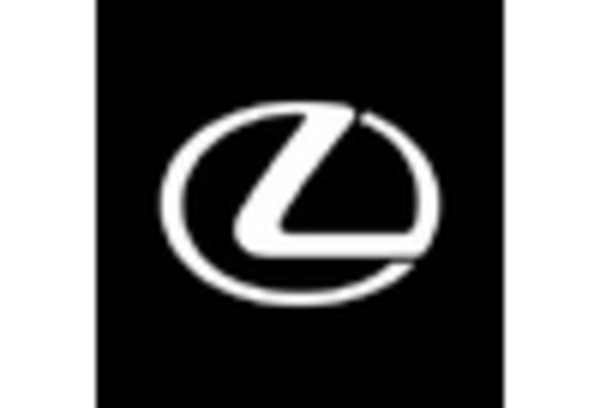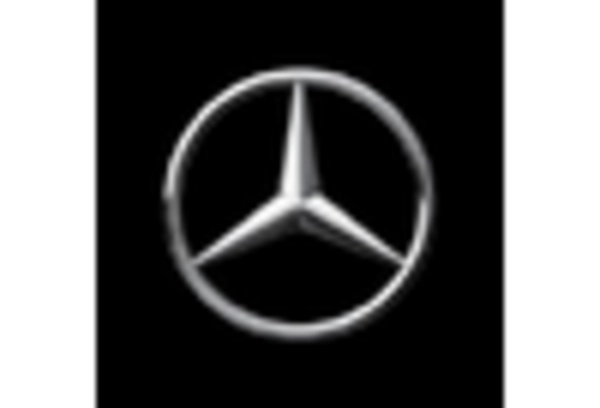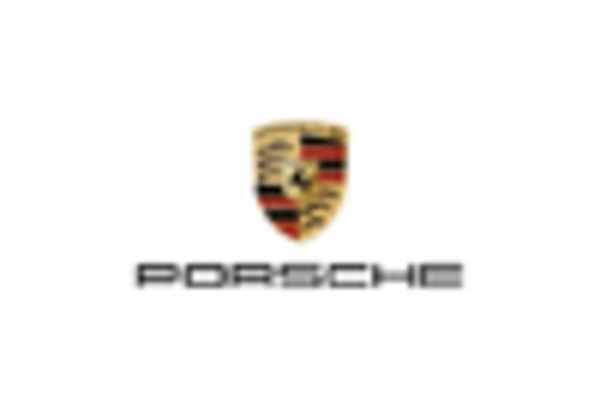Enhanced Safety Features
Safety remains a paramount concern for consumers in the automotive luxury-vehicle market. The integration of advanced safety technologies, such as adaptive cruise control, lane-keeping assistance, and automated emergency braking, is becoming increasingly prevalent. In 2025, nearly 80% of luxury vehicles sold in the US are equipped with these features, reflecting a consumer preference for vehicles that prioritize safety. This trend not only enhances the appeal of luxury vehicles but also aligns with regulatory standards aimed at reducing road accidents. Consequently, the automotive luxury-vehicle market is likely to continue evolving with a focus on safety innovations.
Rising Disposable Income
The automotive luxury-vehicle market is experiencing growth driven by an increase in disposable income among consumers in the US. As economic conditions improve, more individuals are willing to invest in high-end vehicles, which are often seen as status symbols. Data indicates that households with an income exceeding $100,000 have shown a marked increase in luxury vehicle purchases, contributing to a robust market expansion. This trend suggests that as disposable income continues to rise, the demand for luxury vehicles will likely follow suit, further solidifying the automotive luxury-vehicle market's position in the economy.
Growing Interest in Luxury SUVs
The automotive luxury-vehicle market is witnessing a notable shift towards luxury SUVs, which have become increasingly popular among consumers. This trend is driven by the versatility, space, and perceived value that SUVs offer. In 2025, luxury SUVs represent over 50% of all luxury vehicle sales in the US, indicating a significant consumer preference. Manufacturers are responding by expanding their SUV offerings, incorporating high-end features and performance capabilities. This growing interest suggests that the automotive luxury-vehicle market will continue to adapt to consumer preferences, potentially leading to further innovations in the SUV segment.
Shift Towards Sustainable Luxury
Sustainability is becoming a pivotal driver in the automotive luxury-vehicle market. Consumers are increasingly seeking vehicles that not only offer luxury but also adhere to environmentally friendly practices. This shift is evidenced by the growing popularity of electric and hybrid luxury vehicles, which accounted for approximately 15% of luxury vehicle sales in 2025. Manufacturers are responding by investing in sustainable technologies and materials, which appeal to eco-conscious consumers. This trend indicates that the automotive luxury-vehicle market is evolving to meet the demands of a more environmentally aware clientele, potentially reshaping the competitive landscape.
Digital Transformation in Sales Channels
The automotive luxury-vehicle market is undergoing a digital transformation, significantly impacting how consumers engage with brands and make purchasing decisions. Online platforms are increasingly being utilized for vehicle research, virtual showrooms, and even direct sales. In 2025, approximately 30% of luxury vehicle transactions are expected to occur online, reflecting a shift in consumer behavior towards digital engagement. This trend indicates that luxury brands must adapt their sales strategies to incorporate digital tools, enhancing customer experience and accessibility. As a result, the automotive luxury-vehicle market is likely to see a continued evolution in its sales channels.
